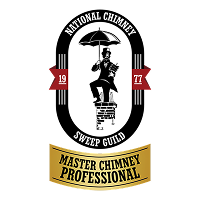How often should I have my chimney cleaned and inspected?
The National Fire Protection Association (NFPA) recommends having your chimney inspected and cleaned at least once a year. Regular inspections help identify creosote buildup, blockages, or damage that could pose safety hazards. Schedule your annual chimney cleaning and inspection with us to ensure your home stays warm and stays safe.
What does a chimney inspection entail?
To ensure nothing is overlooked during your inspection, we use state-of-the-art camera scanning equipment to thoroughly examine your chimney while you watch. Once the inspection is complete, you’ll receive a detailed visual report outlining our findings, recommended actions, and the results of the inspection.
Why does my chimney smell bad, and how can I get rid of chimney odors?
Chimney odors are usually caused by creosote buildup, moisture intrusion, animal nests, or debris inside the flue. Musty, smoky, or rotten smells can also result from negative air pressure drawing odors back into your home. To eliminate chimney odors, we recommend:
- Scheduling a professional chimney cleaning to remove creosote and soot buildup
- Installing an energy efficient top mount damper cap to keep out moisture, animals, and outside air
- Addressing any water leaks or dampness in the masonry
- Improving ventilation to balance air pressure in your home
What are the signs that my chimney needs repair?
Common signs your chimney may need repair include:
- Cracked or crumbling masonry
- Water leaks or moisture stains around the fireplace
- Rust on metal components
- Unusual odors or smoke backing up into your home
- Decreased efficiency when using your fireplace or gas appliance
- Carbon monoxide detectors going off
How can I prevent water leaks in my chimney?
Water leaks are a common chimney problem caused by damaged flashing, cracked masonry, missing chimney caps, and sometimes even internal condensation. We offer waterproofing services, flashing repairs, custom chimney caps, and liners to keep your chimney dry and functional. Schedule a leak inspection today to protect your home from costly water damage.
What are the benefits of installing a chimney liner?
A chimney liner enhances safety and efficiency by guiding smoke and gases out of your home while protecting the masonry from heat and combustion byproducts. Whether you need a liner for your wood stove, gas appliance, or furnace/water heater, our team can recommend the best solution and provide professional installation.
Are gas fireplaces and appliances safe to use?
Yes, gas fireplaces and appliances are safe when properly installed and maintained. Annual inspections and maintenance ensure that your gas appliances operate safely and efficiently. Our technicians are trained to install, repair, and service gas fireplaces and liners to maintain peak performance.
Can Rooftop Chimney Sweeps help with chimney rebuilds and masonry repairs?
Absolutely! We specialize in masonry repairs, chimney rebuilds, and restoration projects. Our skilled masons can address crumbling bricks, cracked crowns, and deteriorating mortar to restore your chimney’s structural integrity and appearance. Contact us today to discuss your masonry needs.
Why does it smell like smoke in the basement when I use my upstairs fireplace?
Smoke in the basement while using an upstairs fireplace is usually caused by negative air pressure. When warm air (and smoke) from the fireplace rises, it needs replacement air and pulls cold air—and sometimes smoke—down through unused chimneys, vents, or flues. This problem is more common in multi-flue chimneys or homes with tightly sealed windows and doors.To resolve the issue, consider:
- Installing top-sealing dampers to improve draft control
- Staggering flues to separate their air flow
- Ensuring proper ventilation throughout your home
- Scheduling a professional inspection to assess flue conditions and air pressure imbalances







